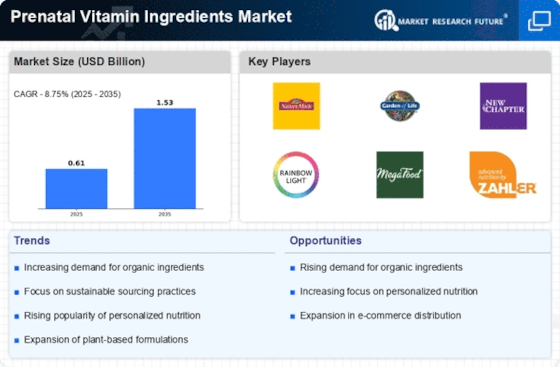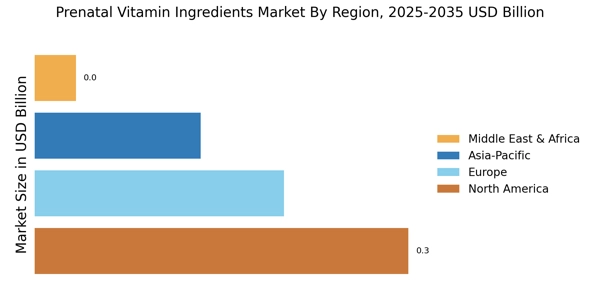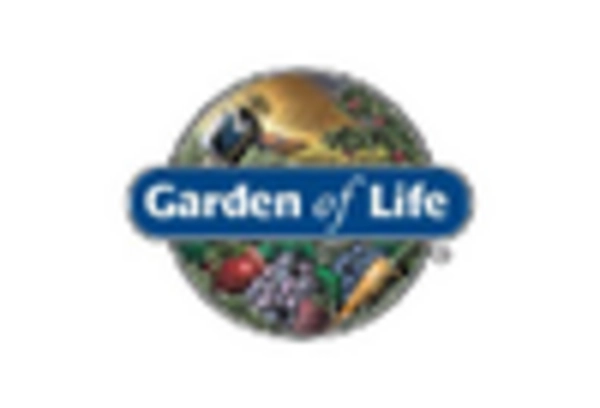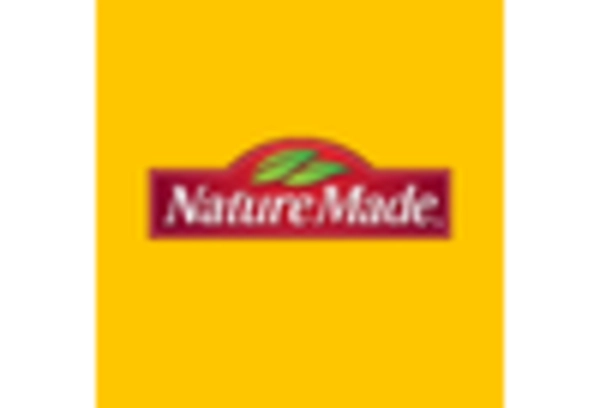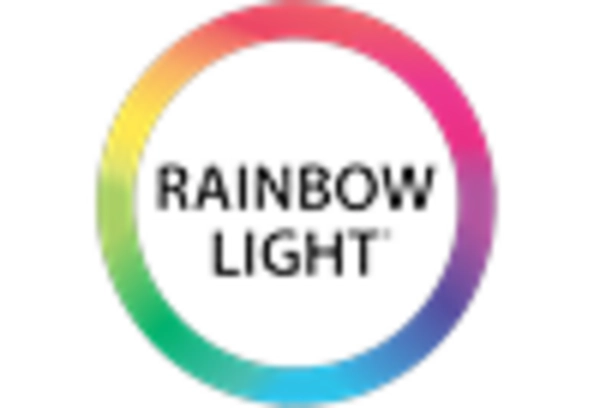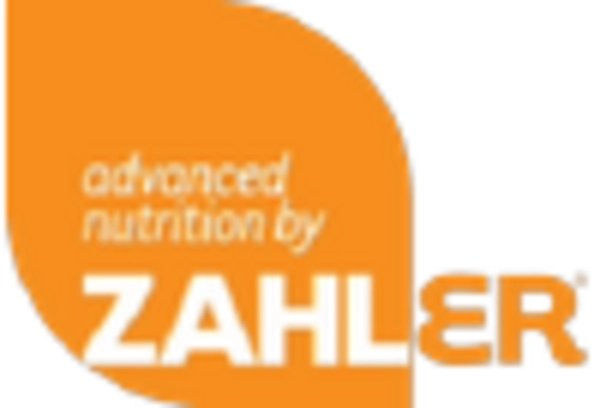Growth of Online Retail Channels
The expansion of online retail channels is transforming the way prenatal vitamins are marketed and sold, acting as a key driver for the Prenatal Vitamin Ingredients Market. E-commerce platforms provide consumers with convenient access to a wide range of prenatal vitamin products, often accompanied by detailed information and customer reviews. This accessibility is particularly appealing to tech-savvy expectant mothers who prefer shopping from home. Data indicates that online sales of dietary supplements, including prenatal vitamins, have seen a substantial increase, suggesting a shift in consumer purchasing behavior. As online retail continues to grow, the Prenatal Vitamin Ingredients Market is poised to benefit from enhanced visibility and sales opportunities.
Advancements in Nutritional Science
Advancements in nutritional science are reshaping the landscape of the Prenatal Vitamin Ingredients Market. Research continues to unveil the critical role of various vitamins and minerals in fetal development, leading to the formulation of more effective prenatal supplements. For example, studies have highlighted the importance of omega-3 fatty acids and probiotics in prenatal nutrition, prompting manufacturers to incorporate these ingredients into their products. This scientific backing not only enhances product efficacy but also drives consumer interest, as expectant mothers seek evidence-based solutions for their nutritional needs. The ongoing evolution in nutritional science is likely to propel the Prenatal Vitamin Ingredients Market forward.
Increasing Awareness of Maternal Health
The growing awareness surrounding maternal health is a pivotal driver for the Prenatal Vitamin Ingredients Market. As more expectant mothers recognize the importance of proper nutrition during pregnancy, the demand for prenatal vitamins has surged. Reports indicate that nearly 70% of pregnant women take prenatal vitamins, reflecting a significant shift towards proactive health management. This trend is further supported by healthcare professionals advocating for the use of prenatal vitamins to prevent deficiencies in essential nutrients such as folic acid and iron. Consequently, the Prenatal Vitamin Ingredients Market is likely to experience robust growth as consumers prioritize their health and that of their unborn children.
Rising Birth Rates in Emerging Economies
The rise in birth rates, particularly in emerging economies, is a significant factor influencing the Prenatal Vitamin Ingredients Market. As populations grow, the demand for prenatal vitamins is expected to increase correspondingly. Data suggests that regions with higher birth rates are witnessing a surge in maternal health initiatives, which often include the promotion of prenatal vitamins. This trend is likely to drive market expansion as manufacturers seek to cater to the needs of expectant mothers in these regions. The Prenatal Vitamin Ingredients Market may thus see a diversification of products tailored to meet the unique nutritional requirements of different demographics.
Regulatory Support for Nutritional Supplements
Regulatory bodies are increasingly endorsing the use of prenatal vitamins, which serves as a crucial driver for the Prenatal Vitamin Ingredients Market. Governments and health organizations are promoting guidelines that recommend specific nutrient intake for pregnant women, thereby enhancing the credibility of prenatal vitamins. For instance, the FDA has established clear regulations regarding the labeling and composition of dietary supplements, ensuring that consumers receive safe and effective products. This regulatory support not only boosts consumer confidence but also encourages manufacturers to innovate and expand their product lines, ultimately contributing to the growth of the Prenatal Vitamin Ingredients Market.


